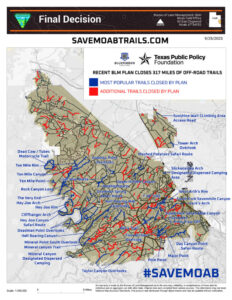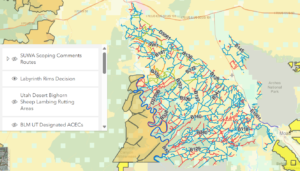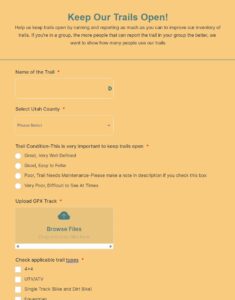It’s All About the Fight for Moab-Updated Status as of November 2, 2023
By Loren Campbell, President Utah Public Lands Alliance November 2, 2023
We have been in a fight for access rights for all in Moab for a very long time, and that battle has heated up a lot in the last year as the result of a 2017 Settlement Agreement between the Department of the Interior and Southern Utah Wilderness Alliance to settle a lawsuit from 2008.
In September, BLM announced their decision to close access to 317 miles of some of the most popular roads and trails in the world in Labyrinth Canyon Gemini Bridges, just north of Moab, 28% of the road network. Also affected by the decision is the closing of almost 120 dispersed camping sites located along the closed roads.
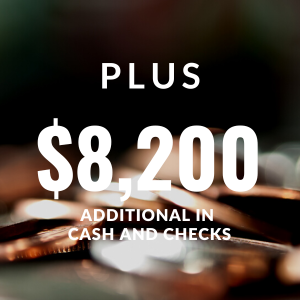
On Monday October 30, an appeal was filed by BlueRibbon Coalition, CO Offroad Trail Defenders. And Patrick McKay. Matt Miller is the senior and lead attorney at the Center for the American Future at the Texas Public Policy Foundation, who filed the appeal with almost 1800 pages of exhibits, hand delivered in boxes to the BLM Moab Field Office. Mr. Miller said “Every American shares in the ownership of public lands, which exist for the responsible enjoyment of anyone who wants to recreate on them. BLM is trying to move use of these lands from the rights-based system that has endured for decades to a permission based system that allows bureaucrats to close these lands to serve their policy preferences.” To read the full Notice of Appeal, click here.
The State of Utah, the United Four Wheel Drive Association, and a few others also filed appeals.
The Interior Board of Land Appeals has 45 days to respond to the appeal and request for stay, during which time the closures will not go into effect, thus trails will remain OPEN!
Utah Public Lands Alliance has pledged to match the first $50,000 in donations dollar for dollar for BlueRibbon Coalition’s Legal Defense Fund when the donation is made through this link. UPLA is also looking for companies or individuals that will extend the match beyond the first $50,000. In addition, every donor will also be able to claim BRC’s Highly Acclaimed Lost Trails Guidebook Volume 2. Your financial support is essential to winning this fight, please give whatever you can. If your organization would like to learn more about increasing the match, please contact me.
Watch an excellent and comprehensive video by Marcus from CORE 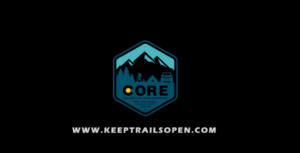 that explains where we are and how we get here, including a candid assessment of the BLM decision, the political bias involved at both the local and Federal level, and most importantly why we need to support BlueRibbon Coalition financially. This is a turning point in our fight against the ever increasing federal overreach of their statutory authority, and if we don’t fight to win now, every decision going forward should be expected to have the same consequences.
that explains where we are and how we get here, including a candid assessment of the BLM decision, the political bias involved at both the local and Federal level, and most importantly why we need to support BlueRibbon Coalition financially. This is a turning point in our fight against the ever increasing federal overreach of their statutory authority, and if we don’t fight to win now, every decision going forward should be expected to have the same consequences.
Visit BlueRibbon Coalition for a map of the most popular trails closed by the Plan and more information. We also encourage you to become a Member of BRC
Access the ArcGIS Map done by Patrick McKay from Colorado Trail Defenders by Clicking here
